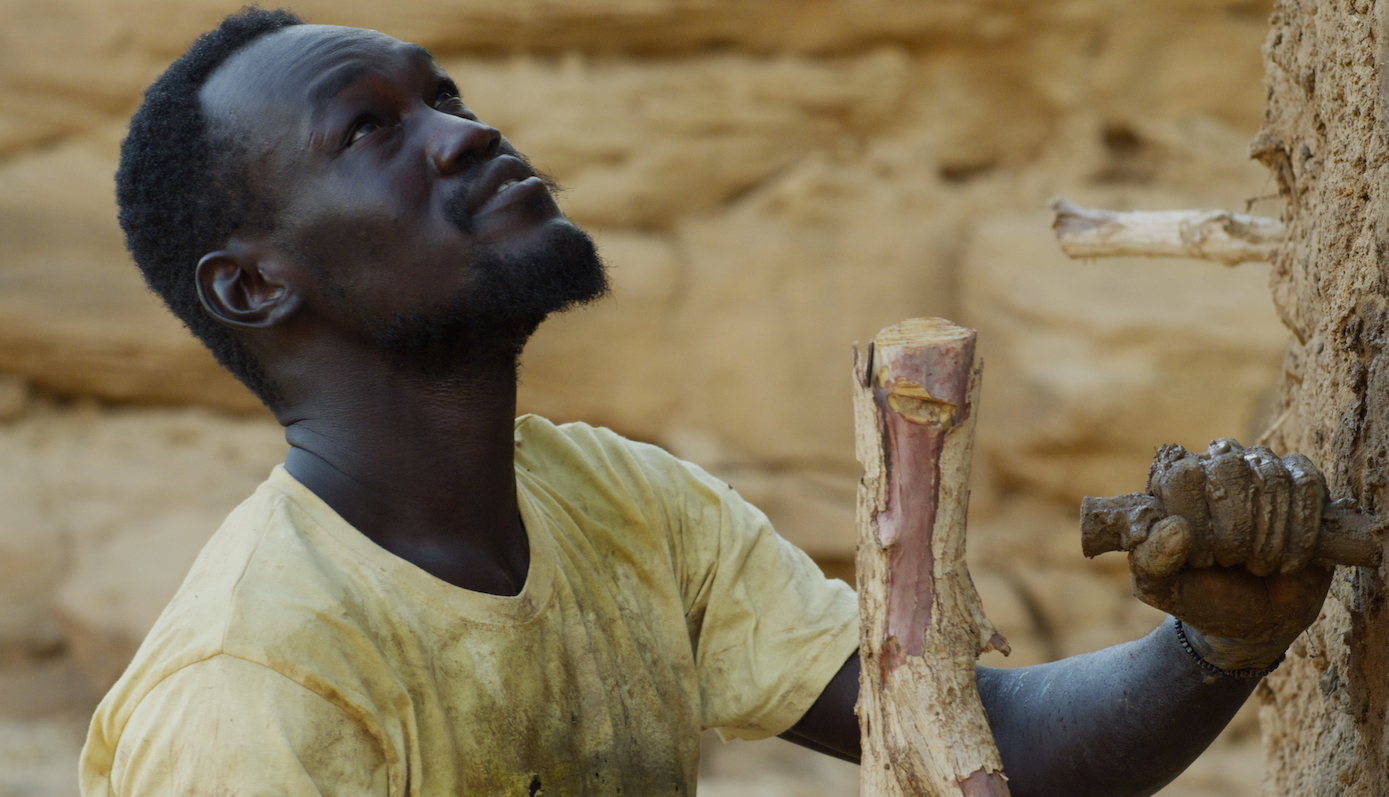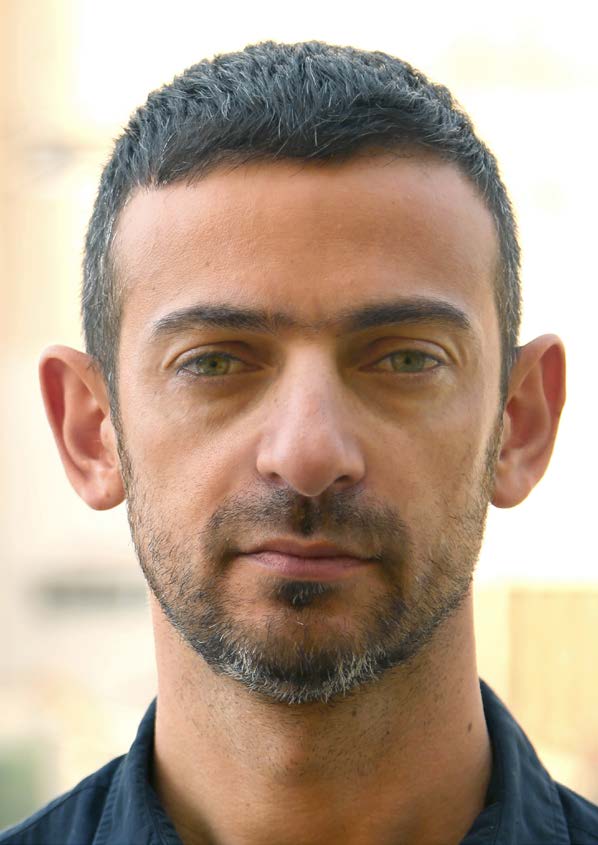It was a great adventure, just finishing the film was a miracle because there were a lot of hard circumstances surrounding it. Being here with a small budget film, with no big names, and by someone who doesn’t have a background in film is a success story on its own.
AM: Why did you choose Sudan for the setting of your film?
My first time in Sudan was in 2017 and I was interested in the story of the Merowe Dam which is one of the three largest dams on the Nile River. At the time there was a lot of conflict between Egypt, Sudan and Ethiopia over access to water, and I am interested in the power of the elements like earth, fire or water, and how they lead to socioeconomical and geopolitical issues. During this trip I met the brickmakers near the Nile and I wrote the film right after that.
AM: In your opinion, what do non-professional actors like Maher El Kheir bring to the table?
It was important for me that everyone plays their actual role. I like to see how stories and history are inscribed on the human body, especially with the brickmakers for example, as they are repeating gestures that were practiced for thousands of years. In a way it’s part of a bigger story with two timelines, a contemporary moment of Sudan today and the beginning of the revolution, and a larger one of the mythical history of mud and creation.
AM: What were some filming obstacles in Sudan?
A lot, because at the time Sudan was still under a dictatorship and to get an authorization to shoot was quite difficult. Sudan is also under an American embargo and part of the countries that are on United States’ blacklist, so we couldn’t enter any equipment because they weren’t covered by insurance. We had to work with whatever was available locally, and since Sudan doesn’t have a cinema industry, it was a very limited access to equipment. When we started shooting in 2019 it was the beginning of the revolution and we were forced to evacuate, we planned for March 2020, and then pushed filming back after COVID for 2021.
AM: Why is the Arab Spring still so intriguing to directors nowadays?
It was an important moment of history, and now with a 10-year distance it’s giving us more maturity and a better perspective. I don’t like the label of Arab Spring because it’s specific to every country and we can’t put them all in the same bag. For me the revolution in Sudan took place as we were shooting, so it appeared organically in the theme. The idea of the dam is a metaphor of oppressive regimes that established structures to control and create destruction, like what the Merowe dam did for the local population, the environment and the flow of water. These oppressive regimes occupy your imagination and you can’t envision a world without them. For political change to happen we need to take back the space for imagination and create the possibility of a new world.
Synopsis: Sudan, near the Merowe dam. Maher works in a traditional brickyard fed by the waters of the Nile. Every evening, he secretly wanders off into the desert to build a mysterious construction made of mud. While the Sudanese people rise to claim their freedom, his creation starts to take a life of its own.
By Victor N.



